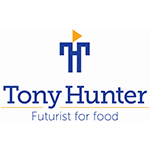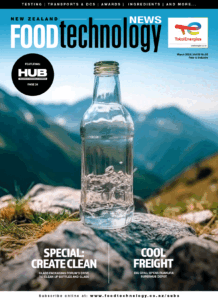
 By Food Futurist, Tony Hunter
By Food Futurist, Tony Hunter
One of the primary principles of futuring is that no-one can predict the future. But as 2020 saw so many things we knew to be true rendered obsolete overnight I thought I might just try anyway.
These are a follow up to some of the technologies I outlined in the December newsletter and we’ll review these predictions next January and see how wrong they were.
- Plant-based meat
We’ll see across the board near price parity between plant-based meat products and conventional meat. This will be driven by the experience curve effect of economies of scale from both existing and new entrants. A signal of change is the new 65-acre Plant & Bean site in the UK with a capacity of 55,000 tons per annum. A significant amount given that McDonalds’s Australia uses 25,000 tons per annum of conventional beef. Will small companies without capacity survive or will they just contract pack? Brand and marketing will become the real differentiator.
As more and more companies introduce ingredients specifically targeted at plant-based meat products making a plant-based meat product will become like a game of Lego. Simply choose your building blocks and assemble. The barriers to entry will become lower and lower, pushing products like mince, burgers and sausages into the commodity category.
There’ll be a proliferation of higher value-added products like salami, ham etc. Even specialty products won’t be immune as shown by the recent introduction of a sinjamon ham mimic. Traditional sinjamon ham gets its flavour from acorn-fed pigs, so the mimic uses acorn flour.
3D printing of steaks will reach commercialisation at restaurant level, perhaps even fully cooked like the SavorEat product.
- Cultivated meat.
With the recent approval from Singapore for Eat Just to sell its cultivated chicken, the pressure will be on for other jurisdictions to approve similar products. Which food authorities around the globe will accelerate their efforts to grant approvals and which will wait and see what happens in Singapore? My bet is that countries with large conventional animal agriculture industries will lag behind those with little or no animal agriculture to protect. The exception may be cultivated seafood in the US which is solely regulated by the FDA (except for catfish) in contrast to the USDA/FDA regulation of terrestrial meat.
BluNalu and Mosa Meats will open pilot plants in 2021, sparking interest and debate over the health and safety of cultivated meat products. BluNalu’s products will actually hit the market in high-end restaurants, further fueling interest and debate. Good communication and transparency of the production process will be key to successful consumer adoption.
- Synthetic biology.
More synthetic biology (synbio) products will be introduced at the ingredients level. Clara Foods egg protein ingredients will revolutionise the food market. Animal-free dairy ingredients from companies like Perfect Day and the dozens of new entrants will further stress the under-siege Dairy industry. Dairy companies will seek to rebrand themselves as more than dairy, similar to meat companies adopting the ‘protein company’ approach. What will they call themselves?
- Personalisation
The personalisation of anything and everything, including food, will continue to expand. Human microbiome research will continue to explode, confirming the highly individual nature of our nutritional response to foods. The cost of whole-genome sequencing will resume its march towards the ‘magic’ USD$100 cost, getting below USD$500 for the first time. ‘Magic’ because at this cost it’s within reach of the majority of the industrialised population on an as-needed basis.
As we increasingly understand what to eat for our individual health the convergence of the food and health industries will accelerate in 2021.
These are my predictions for 2021 and it’ll be yet another interesting year in the food industry, with food as technology continuing to accelerate. Feel free to disagree, I’m always up for a good debate and you can reach me at [email protected] or connect with me on LinkedIn at https://www.linkedin.com/in/tony-hunter/
Tony Hunter is a global futurist, food scientist, speaker and foresight strategy consultant. He consults and speaks globally, using his distinctive combination of scientific qualifications, business experience and detailed understanding of exponential food technologies to deliver a unique perspective on the future of food.

































































































